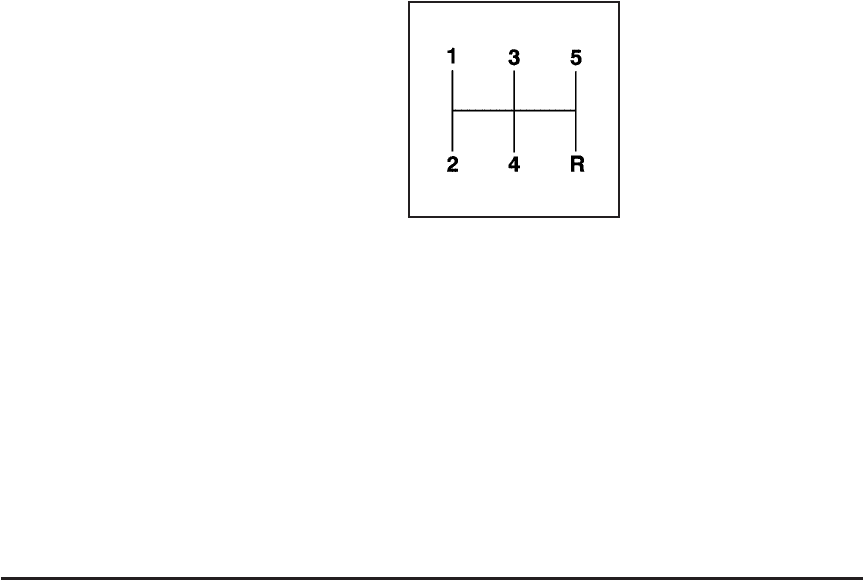
I (Intermediate): This position is also used for normal
driving. However, it reduces vehicle speed without using
the brakes for slight downgrades where the vehicle
would otherwise accelerate due to steepness of grade.
If constant upshifting or downshifting occurs while
driving up steep hills, this position can be used to
prevent repetitive types of shifts. You might choose
I (Intermediate) instead of D (Drive) when driving
on hilly, winding roads and when towing a trailer, so that
there is less shifting between gears.
L (Low): This position reduces vehicle speed more
than I (Intermediate) without actually using the brakes.
You can use it on very steep hills, or in deep snow
or mud. If the shift lever is put in L (Low), the
transmission will not shift into a low gear until the
vehicle is going slowly enough.
Notice: Spinning the tires or holding the vehicle
in one place on a hill using only the accelerator
pedal may damage the transmission. The repair
will not be covered by the vehicle warranty. If you
are stuck, do not spin the tires. When stopping on a
hill, use the brakes to hold the vehicle in place.
Manual Transmission Operation
This is the shift pattern.
Here is how to operate the manual transmission:
1 (First): Press the clutch pedal and shift into 1 (First).
Then, slowly let up on the clutch pedal as you press
the accelerator pedal.
You can shift into 1 (First) when the vehicle is traveling
less than 20 mph (32 km/h). If you have come to a
complete stop and it is hard to shift into 1 (First), put
the shift lever in N (Neutral) and let up on the clutch
pedal. Press the clutch pedal back down. Then shift
into 1 (First).
2 (Second): Press the clutch pedal as you let up on the
accelerator pedal and shift into 2 (Second). Then,
slowly let up on the clutch pedal as you press the
accelerator pedal.
2-28


















